Rio 2016: Sakshi Malik, the female wrestler who got India's first medal
- Published
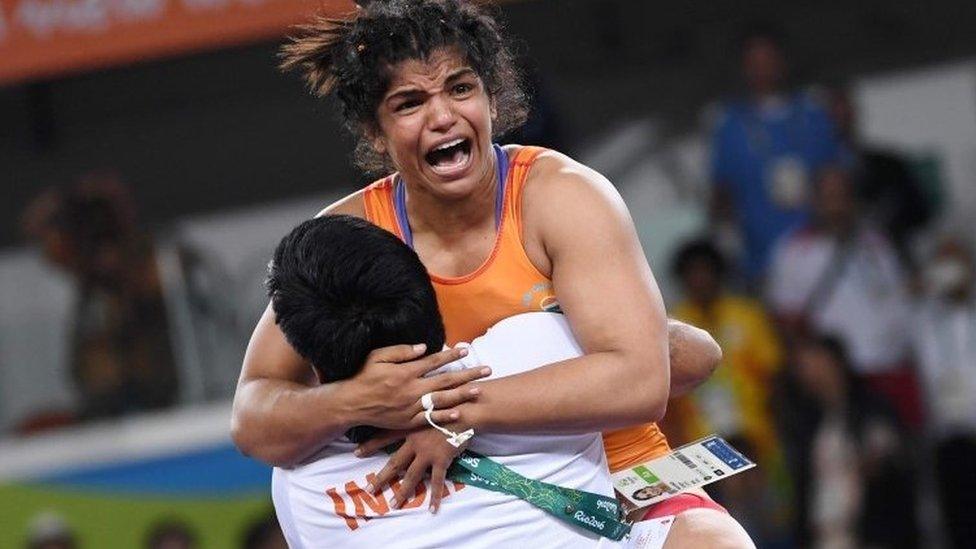
The 23-year-old became the fourth Indian woman to have ever won an Olympic medal
Female wrestler Sakshi Malik has delivered India its first medal of the 2016 Rio Games, sending a nation into ecstasy. But her journey to the Olympic podium has not been easy.
After a gritty performance at the 58kg women's wrestling category she won bronze, becoming the first Indian female wrestler and the fourth Indian woman to win an Olympic medal.
"I never thought I would become the first woman wrestler from India to bag an Olympic medal in wrestling," she told The Hindu newspaper. "I hope the remaining wrestlers will also do well."
Struggle to the top
She was born in India's Haryana state, where women were for some time not allowed to take part in wrestling events.
The 23-year-old started training young, having gained support from her parents to pursue the sport. Media reports say locals initially berated her parents, telling them that their daughter would become undesirable to potential suitors.
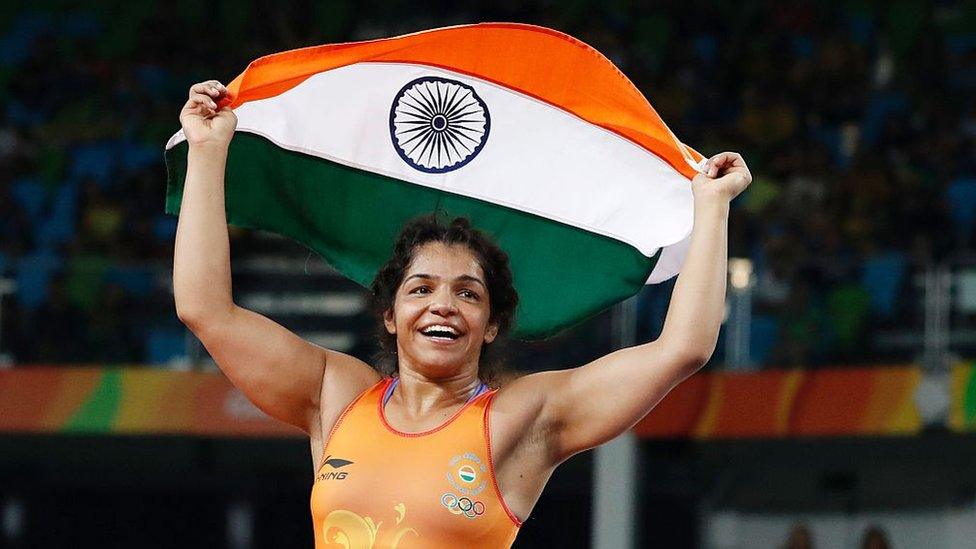
Malik began training at the age of 12
But she went on to earn a silver medal at the 2014 Glasgow Commonwealth Games and walked away with the bronze at the 2014 Incheon Asian Games.
Thursday's bronze medal, was a "result of 12 years of dedication", she said. "I never gave up to the end. In the last round, I had to give my maximum, I had the self belief," she said.
Her father, Sukhvir Malik, told the BBC that "Sakshi is now known to the entire country". "People have been celebrating outside our house since last night", he said.
He added that Sakshi was inspired by her grandfather, a wrestler, to start playing the sport.
"She trained extremely hard - day and night. She had promised me [she would] bring a medal and she has done that."
A woman wrestling in one of India's most conservative states
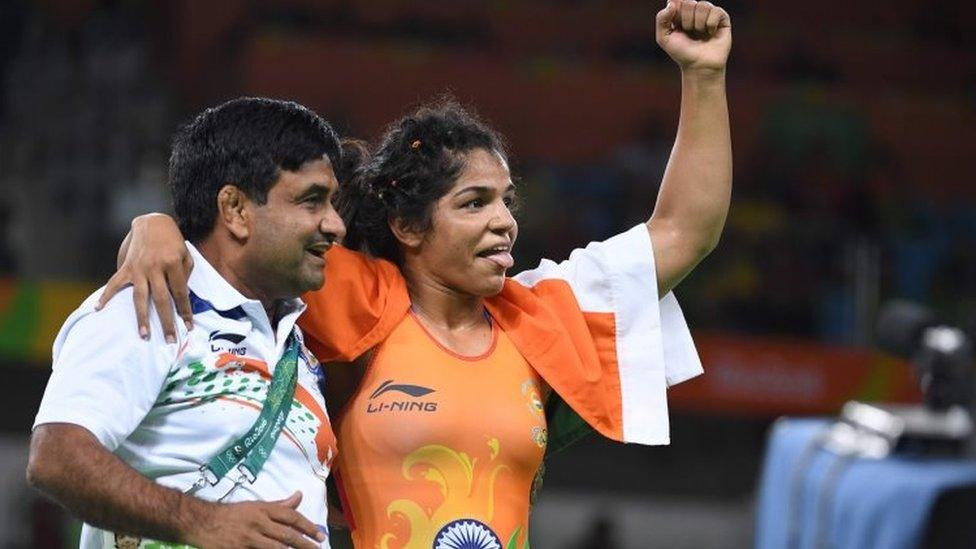
She comes from the district of Rohtak, which gained notoriety in 2014, after two sisters fought back against a group of men who accosted them on a public bus. The state of Haryana is also known for having the most severe gender imbalance in India a sign, campaigners say, of high levels of female foeticide.
Women's wrestling really took off in India in the mid-1990s. But it was not until 2002 that girls were allowed to train with boys in Haryana.
Now all three of India's female wrestlers at the Olympics, a record for the country in any case, are from that state.
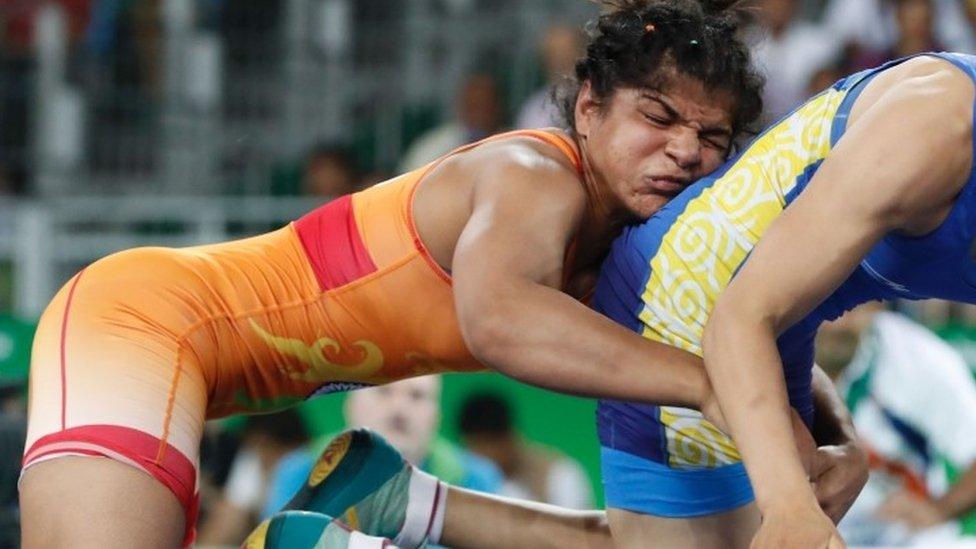
It wasn't until 2002 when girls were allowed to train with boys in Hayana
Ishwar Singh Dahiya, who coached Malik, and is among those credited for the success of women's wrestling in India has said that women have now "put Rohtak on the world wrestling map".
"Girls once not welcome at the Chotu Ram Stadium have now become its pride," Mr Dahiya told the Hindustan Times in 2015, , externalthe year after he retired as district sports officer.
Social media pays homage: 'Dreams into reality'
Joy has swept Indian social media in the hours since her win.
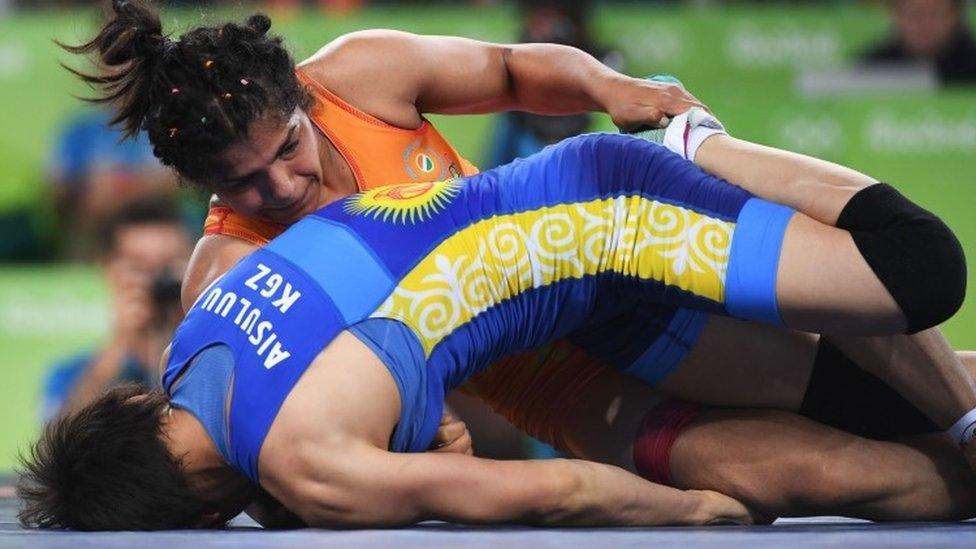
"Sakshi proved women are not weak and in need of protection", said one user on Twitter
Having been dealt a series of disappointments at Rio, India had yet to win a single medal until Malik took to the stage.
"Indian dreams have turned into reality," said one user on Twitter.
"Look at the way Sakshi rescued the Indian tally. She did what brothers couldn't do," said Yashwant Deshmukh, a political analyst.
"Sakshi proved women are not weak and in need of protection," another user chipped in.
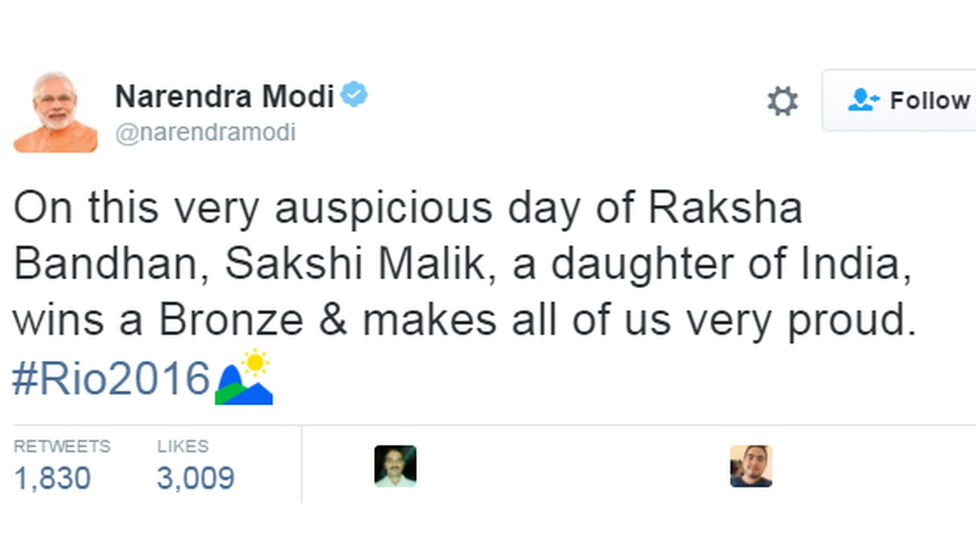
India's prime minister also chipped in, offering his congratulations
India's prime minister Narendra Modi also congratulated Malik for her win, calling her a "daughter of India".
Her own mother told local media she asked her daughter if she was tired after her win, to which she replied: "Nobody feels tired after winning a medal for (their) country".
The manoeuvres that got her a medal
Malik beat Kyrgyzstan's Aisuluu Tynybekova to clinch the bronze medal. She fought back from a 0-5 down to seal the final 8-5 result in her favour.
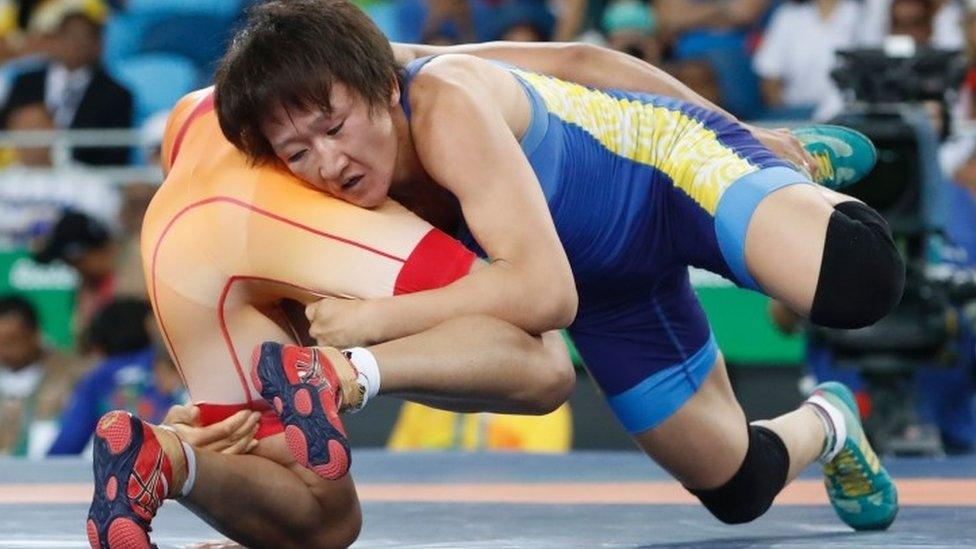
Tynybekova started on a positive note, with a leg-grab first putting her in the lead
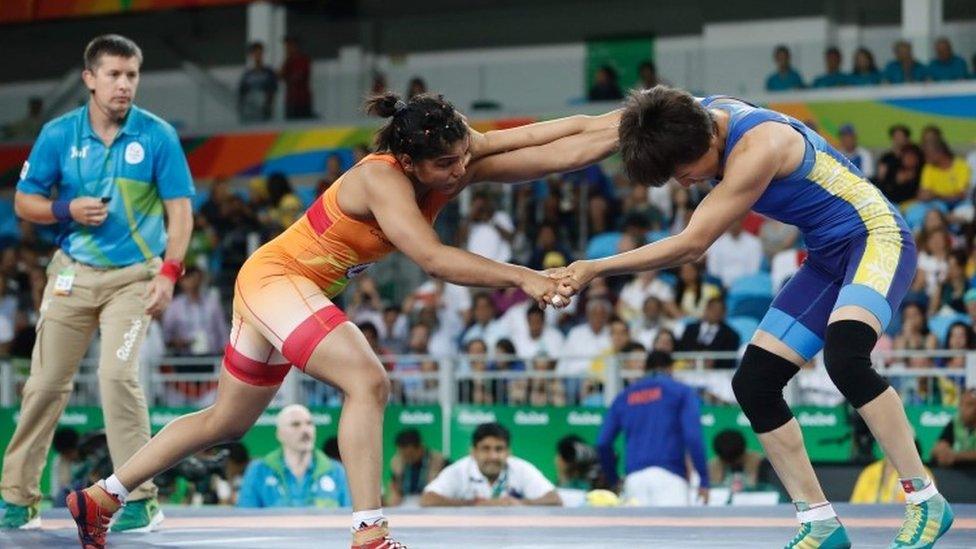
The athletes battled it out, with Malik coming back strongly in the final minutes of the match
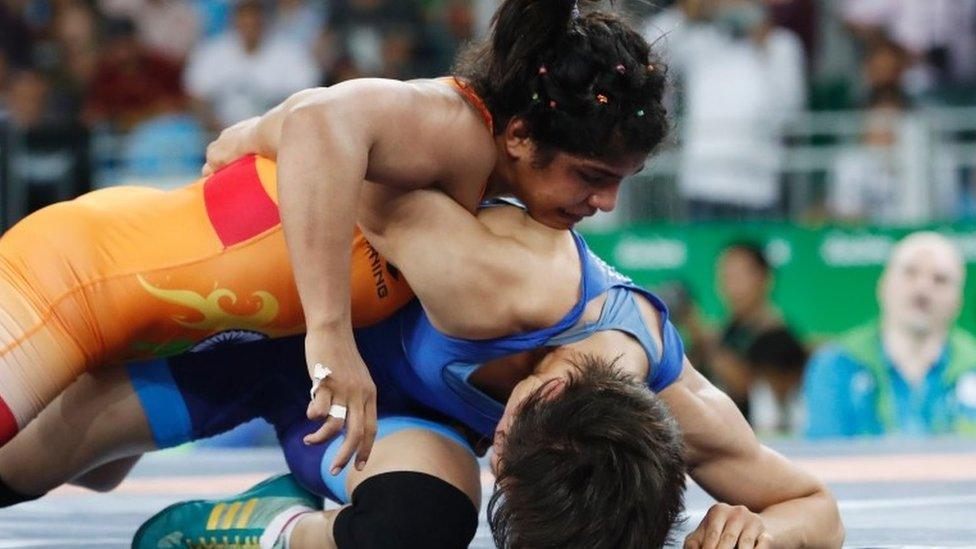
Malik had earlier outplayed Mongolian wrestler Orkhon to advance ahead
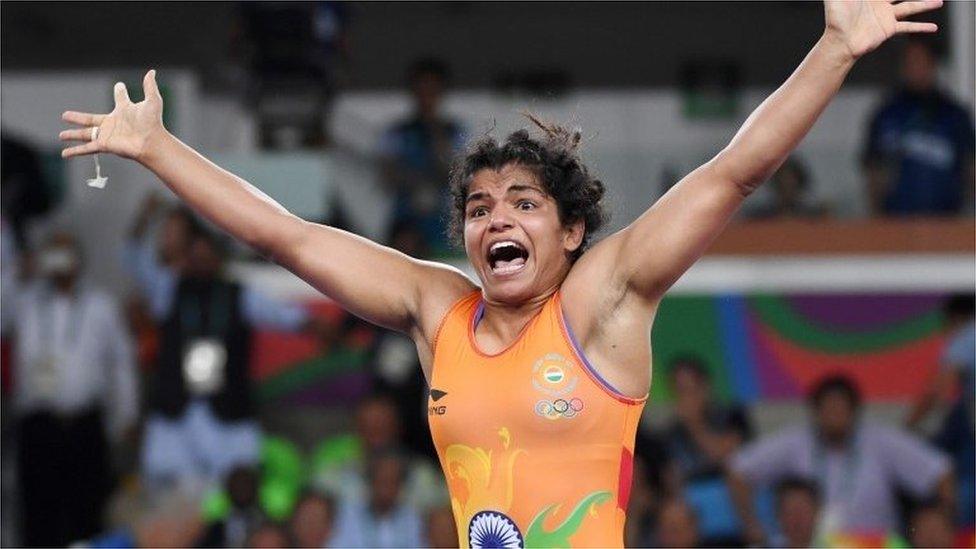
And victory
"Sakshi secured the two point takedown by capitalising on her opponent's failed attempt, then drove in for her very own takedown. That's how she won the match," Arvind Lalwani, Team Singapore wrestler and head coach at Juggernaut Fight Club told the BBC.
"It's not easy to come back when you are five points down - and to win the match in the last few seconds! She just kept going and kept trying to go for the shots and eventually she got them.
"From what I saw, it was pure grit and determination."
- Published17 August 2016
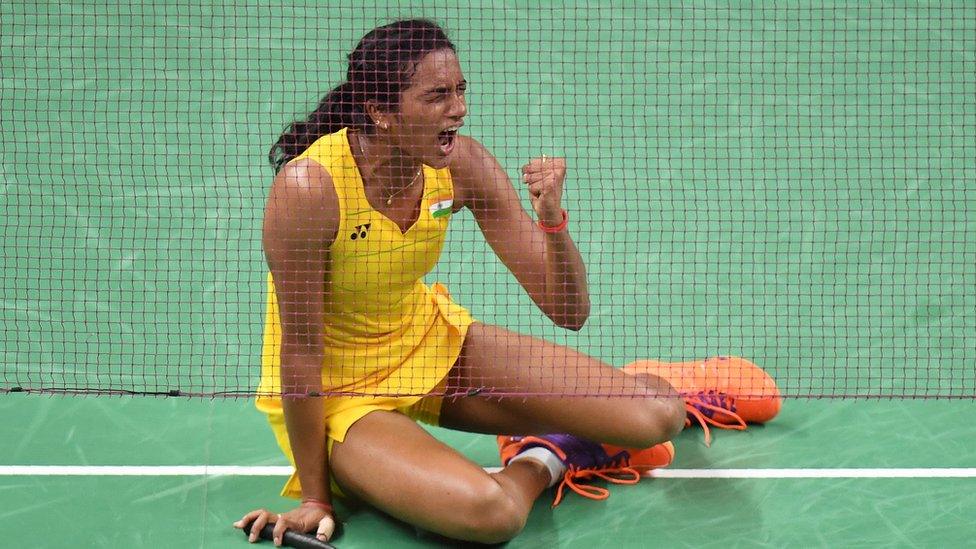
- Published15 August 2016
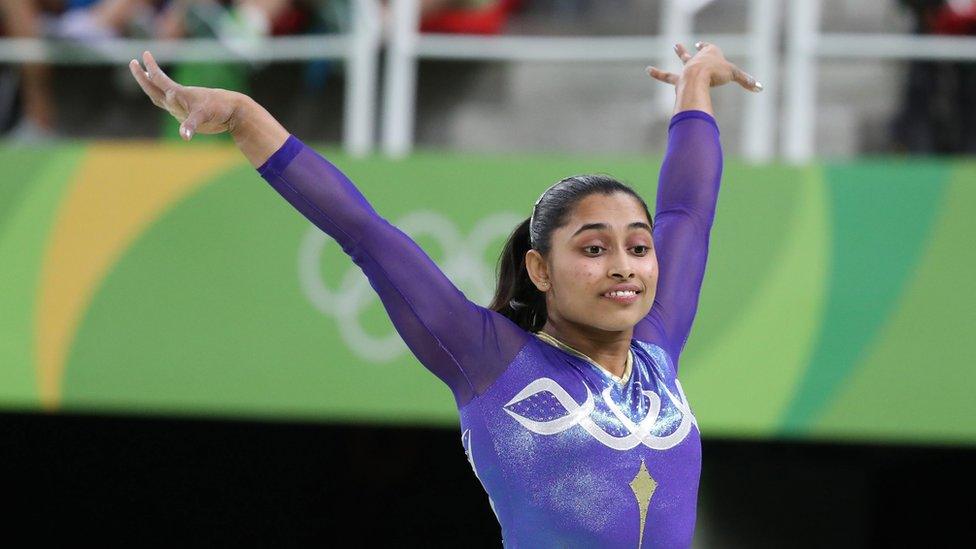
- Published3 August 2016